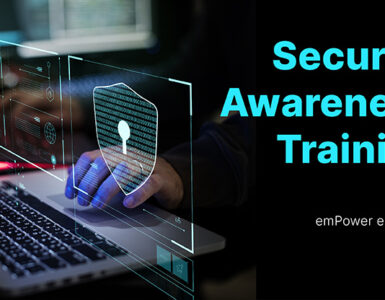Have you used a learning management system before? Or is it the first time that your company would use an LMS for compliance training?
Compliance training is one of the toughest administrative jobs. Consider the following difficulties that compliance officers face every day.
- Train employees about the rules and regulations that apply to their job
- Ensure all employees understand company policies and procedures
- Track the people who haven’t been trained, and take action
Things to remember before choosing an LMS for Compliance Training
Managing compliance training isn’t about training only. The work includes collecting employee affirmations, filing them and preserving those documents for future use. You may need them even after 5-7 years of the training date. Your company should be able to provide the proof of training to the compliance auditor whenever they ask for the documents.
Here’s the list of tasks performed by a compliance officer –
- Design a compliance training program
- Update the training material when the law changes
- Administer the training program
- Document the proof of training
- Audit the training program, and its documentation
Learning management system is a platform that would let you take care of the tasks mentioned above. And, it would let you scale your compliance training program.
How do I choose a learning management system?
Choosing the right LMS would decide how efficiently you achieve your compliance goals. Five compliance goals that should concern you as a compliance officer are –
- Training all employees within time
- Reducing the time spent on tracking training status
- Documenting the proof of training for the entire organization
- Responding to audit queries as early as possible
- Managing the ROI of your compliance program
Such a feat can only be accomplished with a learning management system that’s customized for your organization.
Let us consider the scenario in which your management has approved the budget for a new LMS. You have promised the management that with these changes, you’d improve the compliance score of your organization, and you’d make the training experience more fulfilling for all employees.
So, which LMS should you choose? What factors do you need to consider when selecting a compliance LMS for your organization?
Unfortunately, most learning management systems fail when used for compliance training.
Why most LMS fail when used for compliance training
- Difficult to use
- Inflexibility in terms of adapting to customer needs
- Inbuilt reports that don’t help with compliance audits
- Failure to aid trainer-trainee interaction
- Awful vendor support
- Lack of Mobile-friendliness
- Horrible return on investment (ROI)
Another important factor that you need to consider is the end goal of your compliance program. Analyze your requirements. What do you want from you LMS?
Benefits of using an LMS for compliance training
Here is why most compliance officers opt for a learning management system –
- Administer training to multiple users from your desk.
- Administer training to users working across shifts and locations.
- Bring all your compliance activities onto a single platform.
- Manage training certificates, policy and procedure attestations, and compliance documents using the Internet.
- Conduct periodic re-certifications.
- Track training status.
- Create an audit trail of your compliance program.
But aren’t these standard features of an LMS?
True, many learning management systems offer these features. Some offer these features as a part of their standard package. But are these features enough to satisfy your compliance needs?
As per the Brandon Hall study into this matter, nearly 31% of companies won’t recommend their LMS to their colleagues. Even compliance officers who have just implemented a new solution aren’t sure if it would meet their future needs.
Why are so many companies not satisfied with their learning management system?
The most cited reason is vendor support. Nearly 38% of companies using an LMS want to switch providers because of poor vendor support.
Value of vendor support in compliance training
A feature that sets a compliance LMS vendor apart is its willingness to customize their product to meet customer needs. The best LMS vendors would offer LMS customization to you as a part of your package.
You need an LMS that could be customized to work with your existing technology infrastructure.
Should you really invest in software that won’t generate reports as per the criterion defined by your auditors?
If your organization uses location IDs to track employees, then your compliance LMS should also have the option to group employees by location.
Good compliance LMS vendors don’t just sell training software to you. They offer you a complete compliance solution. Their products let you assign and track training, manage policy attestation, create document libraries, and customize your LMS settings.
Ease of use
Ease-of-use and mobile-friendly are other two factors that you should look for when choosing an LMS for compliance training. Most of your users would be taking their training on mobile phones, so the LMS you choose must be mobile-friendly.
Training Catalog
The last criterion that you need to consider is the training catalog. The LMS should satisfy the listed criteria in terms of its training catalog –
- Does it come equipped with an inbuilt training program
- Can you use the LMS to create your training courses
- Does the LMS support uploading of third-party courses
- Does it allow you to refresh course content
- Is the LMS SCORM compliant
In conclusion
You consider the factors listed above when choosing an LMS for compliance training. An LMS that doesn’t satisfy the above factors may fail to meet your future requirements.
Your LMS should be equipped to handle complex situations, such as retraining employees after an accident or updating training courses after changes to industry regulations. Emergency government orders could force you to update your policies and procedures mid-year and retrain your employees for the changes.
Your LMS should be equipped to handle such dynamic situations. Every time such a situation arises, the LMS should have the flexibility to accommodate the changes without interrupting the training programs in progress.
The most important key is vendor support. Unless the LMS offers good and timely vendor support, you may be unable to handle external audits. Compliance audits can be really demanding. Auditors may ask for information that you may not have at hand. They may ask for reports that the LMS may not be able to generate. Only good vendor support can help you at such times.
The role of a compliance LMS isn’t limited to assigning and tracking training; it plays a broader role. It automates your training documentation. And it helps create an audit trail of your training efforts.
What features do you look for in a compliance LMS? What factors do you think are important when choosing an LMS? Please share your views on this topic in the comments below.





